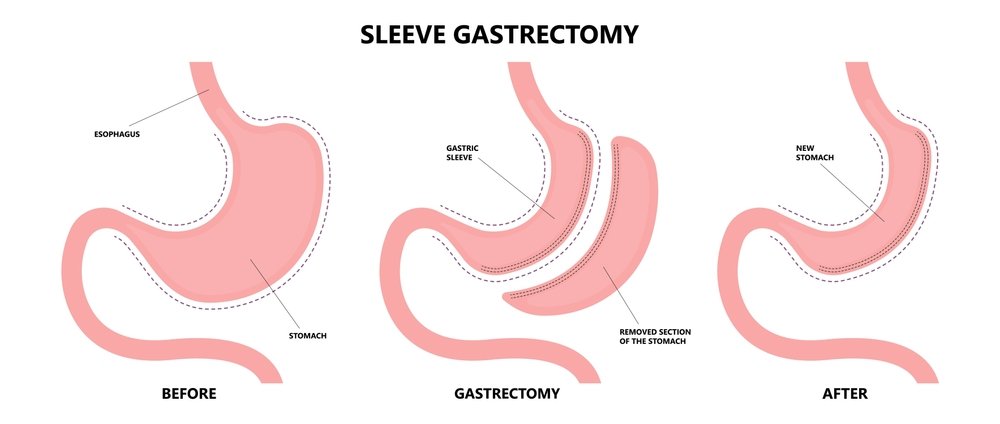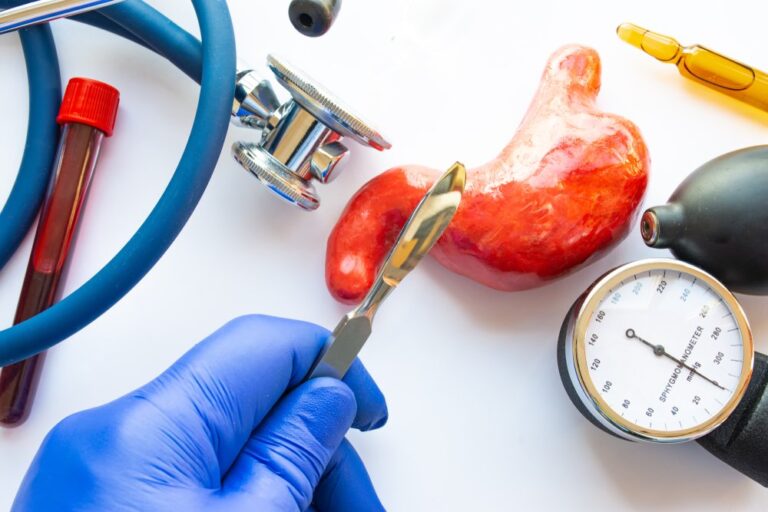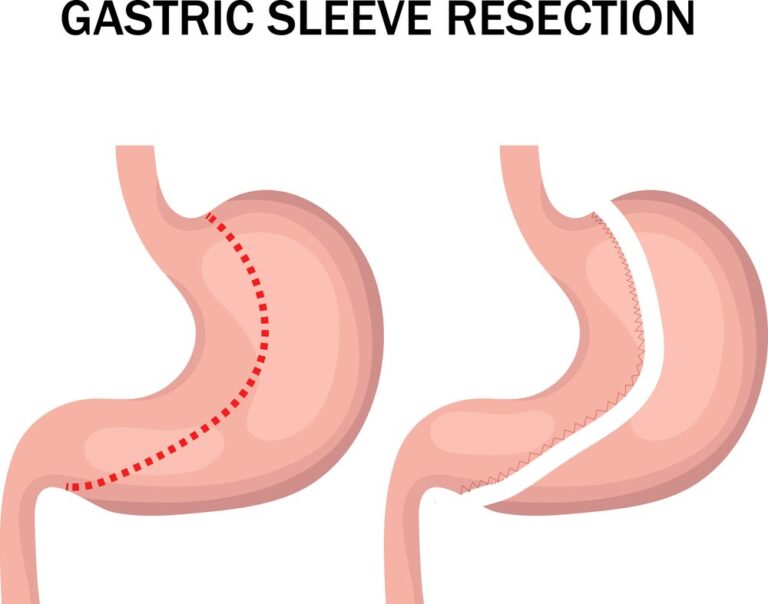Considering “Gastric sleeve revision to bypass reviews” is a significant decision that requires careful consideration. Reviews from individuals who have undergone this procedure can provide valuable insights into their experiences and outcomes.
Get a $1000 Off on Gastric Sleeve in Miami
Reasons for Considering Gastric Sleeve Revision to Bypass
There are several reasons why individuals may consider gastric sleeve revision to gastric bypass surgery. While gastric sleeve surgery is effective for many, some individuals may experience certain challenges or complications that lead them to seek revision. Here are some common reasons for considering gastric sleeve revision to bypass:
- Inadequate Weight Loss: Despite initially losing weight after gastric sleeve surgery, some individuals may not achieve their desired weight loss goals or experience weight regain over time. Revision to gastric bypass can provide an additional tool for weight loss and help individuals overcome plateaus or regain control.
- Persistent Acid Reflux: Gastric sleeve surgery may sometimes lead to persistent or worsened acid reflux symptoms in some individuals. Revision to gastric bypass can help alleviate acid reflux by rerouting the digestive tract, reducing the exposure of stomach acid to the esophagus.
- Gastroesophageal Reflux Disease (GERD): In some cases, gastric sleeve surgery may worsen or lead to the development of gastroesophageal reflux disease (GERD). Gastric bypass revision can be considered to manage GERD symptoms effectively.
- Inadequate Resolution of Coexisting Medical Conditions: Some individuals may have pre-existing medical conditions such as type 2 diabetes or hypertension that are not adequately resolved by gastric sleeve surgery. Gastric bypass revision can offer improved control and management of these conditions.
- Poor Appetite Control: While gastric sleeve surgery helps reduce appetite, some individuals may still struggle with poor appetite control or ongoing feelings of hunger. Gastric bypass revision can further enhance appetite control and promote greater satiety, leading to better long-term weight management.
- Revision for Metabolic Syndrome: In some cases, gastric sleeve revision to gastric bypass may be recommended for individuals with metabolic syndrome or other metabolic disorders that require more significant metabolic changes to promote weight loss and improve overall health.
- Enhanced Weight Loss Potential: Gastric bypass surgery typically provides greater weight loss potential compared to gastric sleeve surgery. Individuals who desire more substantial weight loss may consider revision to gastric bypass to achieve their weight loss goals.
It is important to note that each individual’s case is unique, and the decision for gastric sleeve revision to bypass should be made in consultation with a healthcare professional or bariatric surgeon.

Inadequate Weight Loss or Weight Regain Post-Gastric Sleeve
While gastric sleeve surgery is an effective weight loss procedure for many individuals, some may experience inadequate weight loss or weight regain over time. This can be disheartening and may prompt individuals to consider additional interventions or revisions. Here are some factors that could contribute to inadequate weight loss or weight regain post-gastric sleeve surgery:
| Inadequate Weight Loss or Weight Regain Post-Gastric Sleeve |
|---|
| 1. Stomach Stretching |
| 2. Dietary Choices |
| 3. Lack of Physical Activity |
| 4. Metabolic Factors |
| 5. Psychological Factors |
| 6. Medical Conditions |
Managing Complications from Gastric Sleeve Surgery
While complications from gastric sleeve surgery are relatively rare, it is important to be aware of potential risks and know how to manage them effectively. If you experience complications following the surgery, prompt medical attention and appropriate management are crucial. Here are some strategies for managing complications from gastric sleeve surgery:
- Infection: If you suspect an infection at the surgical site or experience symptoms such as redness, swelling, warmth, or pus discharge, seek medical attention immediately. Your healthcare provider may prescribe antibiotics or perform additional interventions to treat the infection.
- Leakage: In some cases, leaks may occur at the staple line of the stomach after gastric sleeve surgery. Symptoms may include severe pain, fever, rapid heart rate, difficulty breathing, or worsening abdominal distension. If you suspect a leak, contact your healthcare provider immediately. Treatment may involve interventions such as drainage, antibiotics, or revision surgery.
- Stricture: Strictures are narrowings of the stomach opening that can cause difficulty swallowing, nausea, vomiting, or feeling full quickly after eating. If you experience these symptoms, consult with your healthcare provider. They may perform diagnostic tests and recommend interventions such as endoscopic dilation to widen the narrowed area.
- Gastroesophageal Reflux Disease (GERD): If you develop persistent or worsening acid reflux symptoms after surgery, your healthcare provider may suggest lifestyle modifications, medication adjustments, or further interventions. These may include medications to reduce stomach acid production or, in some cases, revision surgery to convert to a gastric bypass.
- Nutritional Deficiencies: Nutritional deficiencies can occur after gastric sleeve surgery, particularly if dietary recommendations and supplementation guidelines are not followed. Regular monitoring of nutrient levels through blood tests and adhering to prescribed vitamin and mineral supplementation can help manage deficiencies. Working closely with a registered dietitian is essential to ensure adequate nutrition.
- Lifestyle Modifications: Making appropriate lifestyle changes can help manage complications and support long-term success after gastric sleeve surgery. This includes adopting a nutrient-dense, balanced diet, practicing portion control, engaging in regular physical activity, managing stress levels, and attending follow-up appointments with your healthcare provider.
It is crucial to communicate openly with your healthcare provider and promptly report any complications or concerns you may have. They will assess your symptoms, conduct necessary investigations, and recommend appropriate management strategies based on your specific situation.
Patient Reviews: Gastric Sleeve Revision to Bypass
Patient reviews provide valuable insights into the experiences and outcomes of individuals who have undergone gastric sleeve revision to gastric bypass surgery. Here are a few reviews from patients who have undergone this procedure:
- Review 1: “After struggling with inadequate weight loss and experiencing weight regain following my gastric sleeve surgery, I decided to undergo gastric sleeve revision to bypass. The revision surgery was a game-changer for me. I’ve seen significant weight loss and have been able to maintain it more effectively. The bypass has provided better appetite control and helped me develop healthier eating habits. I’m extremely satisfied with the results and grateful for the opportunity to have a fresh start.”
- Review 2: “Opting for gastric sleeve revision to gastric bypass was the best decision I made on my weight loss journey. The revision surgery has helped me overcome the weight loss plateau I reached after my initial sleeve surgery. With the bypass, I feel fuller for longer and have more control over my food choices. I’ve noticed a significant improvement in my overall health, and I’m thrilled with my progress.”
- Review 3: “Gastric sleeve revision to bypass has been a life-changing experience for me. Despite initially seeing good results with the sleeve, I started to regain weight over time. The revision surgery has reignited my weight loss journey and provided me with better tools for success. The bypass has helped me achieve more substantial weight loss and regain control over my appetite. I am grateful for this second chance to improve my health and well-being.”
- Review 4: “I had my gastric sleeve revised to gastric bypass due to inadequate weight loss and ongoing struggles with hunger. The revision surgery has made a remarkable difference in my weight loss efforts. The bypass has helped me feel satisfied with smaller portions and significantly reduced my cravings. I am finally experiencing the weight loss I had hoped for, and I couldn’t be happier with the results.”
These reviews highlight the positive experiences individuals have had with gastric sleeve revision to gastric bypass surgery. However, it is important to remember that individual experiences may vary. It is crucial to consult with a healthcare professional or bariatric surgeon to discuss your specific circumstances and determine the most suitable approach for you.

Understanding Gastric Sleeve and Gastric Bypass Surgeries
Gastric sleeve and gastric bypass surgeries are two common weight loss procedures that can help individuals achieve significant and sustainable weight loss. Here’s an overview of these surgical procedures:
Gastric Sleeve Surgery (Sleeve Gastrectomy): Gastric sleeve surgery involves removing a large portion of the stomach to create a smaller, sleeve-shaped stomach pouch. The procedure restricts the amount of food the stomach can hold, leading to reduced food intake and earlier feelings of fullness. The removed portion of the stomach also produces the hunger hormone ghrelin, which helps decrease appetite. The remaining stomach is stapled and closed, creating a long, narrow tube-like structure. The procedure does not involve rerouting or altering the small intestine.
Gastric Bypass Surgery (Roux-en-Y Gastric Bypass): Gastric bypass surgery involves creating a smaller stomach pouch by stapling off a section of the stomach. This smaller pouch is then connected directly to the small intestine, bypassing a portion of the stomach and the upper part of the small intestine. This rerouting of the digestive system restricts both the amount of food that can be consumed and the absorption of nutrients. The bypassed portion of the stomach continues to produce digestive juices, which are eventually combined with food further down the small intestine.
Key Differences:
- Stomach Size: In gastric sleeve surgery, a large portion of the stomach is removed, leaving a smaller stomach pouch. In gastric bypass surgery, the stomach is divided into a smaller pouch, while a portion of the stomach is bypassed and not removed.
- Digestive System Alteration: Gastric sleeve surgery does not involve rerouting or altering the small intestine, whereas gastric bypass surgery reroutes the digestive system, bypassing a portion of the stomach and the upper part of the small intestine.
- Hormonal Changes: Gastric sleeve surgery primarily affects hunger and appetite by removing the part of the stomach that produces the hunger hormone ghrelin. Gastric bypass surgery also affects hormones involved in appetite regulation by changing the interaction between food and digestive juices in the small intestine.
- Nutrient Absorption: Gastric sleeve surgery generally preserves normal nutrient absorption as the intestines remain intact. In gastric bypass surgery, there is some degree of malabsorption as the rerouted digestive system bypasses a portion of the stomach and the upper small intestine.
Considerations: Both gastric sleeve and gastric bypass surgeries have proven to be effective in achieving significant weight loss and improving obesity-related health conditions. The choice between the two surgeries depends on various factors, including individual health conditions, body mass index (BMI), preferences, and discussions with healthcare professionals. It is important to consult with a bariatric surgeon or healthcare provider to determine the most suitable surgical option based on your specific needs and goals.
Consulting Your Surgeon: Key Factors to Consider
When consulting with a bariatric surgeon for weight loss surgery, there are several key factors to consider:
- Weight Loss Goals: Discuss your desired weight loss goals with the surgeon to set realistic expectations.
- Health Conditions: Inform the surgeon about any pre-existing health conditions you have.
- Medical History: Provide a comprehensive medical history, including past surgeries and gastrointestinal disorders.
- Body Mass Index (BMI): Your BMI will help determine the most suitable surgical procedure.
- Risks and Complications: Understand the potential risks and complications associated with each procedure.
- Lifestyle Modifications: Learn about the necessary lifestyle changes before and after surgery.
- Recovery and Post-operative Care: Inquire about the expected recovery process and post-operative care requirements.
- Long-term Outcomes: Discuss the long-term weight loss outcomes and maintenance strategies.
- Support and Follow-up: Inquire about the available support services and follow-up care provided by the surgical team.
Effective communication with the surgeon is crucial throughout the consultation process. They will address your concerns and provide personalized advice to help you make an informed decision about weight loss surgery.
.






